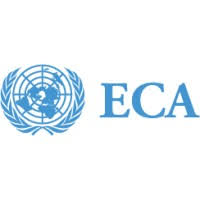The Economic Commission for Africa (ECA) has reiterated the need to reform the global financial system to align with the development realities and risks confronting African nations.
Executive Secretary of ECA, Claver Gatete, made this known in a statement issued at the close of the Fourth International Conference on Financing for Development (FfD4), held in Seville, Spain.
Countries from the continent used the platform to advocate systemic reforms aimed at unlocking financing for sustainable development.
The conference concluded with the adoption of the “Seville Commitment,” a 38-page document outlining voluntary actions by countries and institutions to improve access to development finance and promote inclusive, sustainable growth.
Gatete described the call as one concerning “survival, transformation, and sovereignty over Africa’s development path.”
He noted that the continent requires an estimated $1.3 trillion annually to meet the Sustainable Development Goals (SDGs), yet continues to face high borrowing costs, reduced access to concessional finance, and investment patterns that deter progress.
Despite these challenges, Gatete said Africa’s investment potential remains strong, citing the African Continental Free Trade Area (AfCFTA), which has created a $3.4 trillion market and a pipeline of viable projects across energy, transport, agriculture, and digital infrastructure.
“Outdated risk models and skewed credit ratings continue to push capital away from Africa. We do not lack projects, we lack access to capital,” he said.
To tackle these challenges, ECA and other African delegates at the conference advocated for new eligibility criteria for concessional financing, the establishment of an African credit rating agency, and the adoption of a Multidimensional Vulnerability Index.
“Gross Domestic Product (GDP) alone no longer reflects the complexity of our societies. Eligibility for finance must be based on actual vulnerability and development need, not just numbers,” Gatete added.
A key highlight of Africa’s participation in Seville was the launch of the Platform for Action on Private Investment Mobilisation, a joint initiative by ECA, Convergence Blended Finance, the OECD-DAC, and other partners.
The platform aims to increase private capital inflows into key sectors via blended finance, with a focus on industrial zones, trade corridors, and renewable energy.
“We are not just listing projects, we are proposing a coordinated, African-led mechanism to attract capital where it is most needed,” Gatete said.
He also called for expedited and equitable sovereign debt restructuring processes involving private creditors, especially for middle-income countries grappling with structural and social vulnerabilities.
Additionally, Gatete proposed the creation of an Integrated FfD Follow-up System, featuring regional observatories and national coordination units across Africa. The mechanism would be co-led by the African Union Commission, ECA, and the African Development Bank (AfDB).
“Without effective tracking and accountability mechanisms, commitments made at the conference risked losing credibility. The real test of Seville will not be what we declared in this room, but what we implement beyond it,” he said.
(NAN)


